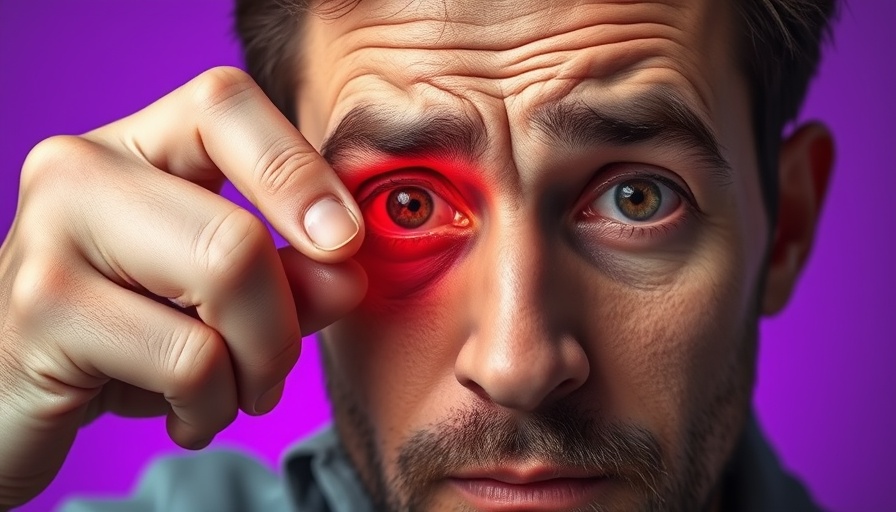
Medications and Eye Health: What You Need to Know
In the fascinating world of medications, we often focus on the ailments they treat, but it's crucial to also consider their potential side effects. Many commonly prescribed and over-the-counter medications can have surprising impacts on our vision and eye health. Awareness of these effects can empower patients and lead to better discussions with healthcare providers.
In CRAZY Eye Side Effects! 10 Common Medications you didn't know affects your eyes, the discussion dives into surprising interactions between common medications and eye health, prompting us to explore these key insights further.
The Hidden Impact of Allergy Medications
Many individuals rely on allergy medications for relief from seasonal discomforts, often without realizing the possible consequences for their eyes. Antihistamines, particularly diphenhydramine found in brands like Benadryl, can lead to dry eyes, exacerbating any existing irritation. This is particularly concerning for those already experiencing allergy symptoms, as dryness can compound discomfort significantly. Switching to non-drowsy alternatives like loratadine may mitigate these side effects, promoting better overall eye health.
Understanding Cold and Flu Medications
When it comes to relieving cold and flu symptoms, many people gravitate toward over-the-counter treatments containing ingredients like phenylephrine and pseudoephedrine. These not only work to alleviate congestion but can also dilate pupils. For individuals with certain pre-existing eye conditions such as glaucoma or hyperopia (far-sightedness), this could trigger an acute angle-closure attack, leading to a rapid increase in eye pressure. Symptoms like red eyes, blurriness, and severe headaches are calls to action for an eye examination.
Medications for Attention Deficit Disorders
Concerns related to ADHD medications, such as Adderall and Vyvanse, primarily focus on their ability to induce pupil dilation. While this effect may not be as severe as with other medications, it can lead to visual disturbance, making it challenging to maintain clear focus on objects. Regular check-ups can help manage these visual fluctuations and ensure any underlying issues are addressed promptly.
How Erectile Dysfunction Medications Can Affect Women Too
Interestingly, erectile dysfunction medications like Viagra are known for side effects that affect vision—users might experience light sensitivity and unusual color perception. For some, the world may appear tinted blue, hinting at the underlying pharmacological mechanisms at work. Though serious complications such as ischemic optic neuropathy are rare, they underscore the importance of using these medications judiciously and remaining vigilant about changing vision.
Caution with Anti-Cancer Medications
Patients undergoing cancer treatment should also be aware of ocular complications associated with some therapies. For example, tamoxifen, a drug commonly used in breast cancer treatment, may lead to retinal changes that could affect vision. Keeping up with regular eye exams is advisable for anyone on long-term medication, especially to screen for conditions that may need early intervention.
Communication is Key
Ultimately, knowing how medications might impact eye health allows individuals to be proactive in their healthcare. It's essential to communicate openly with healthcare providers and share a comprehensive list of all medications being taken. This transparency can lead to tailored advice, helping to minimize risks.
Encouragement to Explore and Share
For anyone who has benefited from the information shared, consider spreading the knowledge by sharing this article with friends and family. In this way, we can create a more informed community committed to better eye health and overall wellness. After all, the choices we make today influence our health tomorrow!
 Add Row
Add Row  Add
Add 




Write A Comment